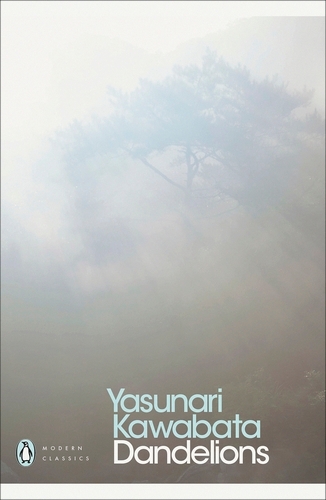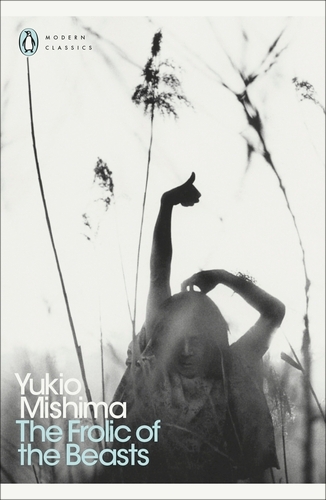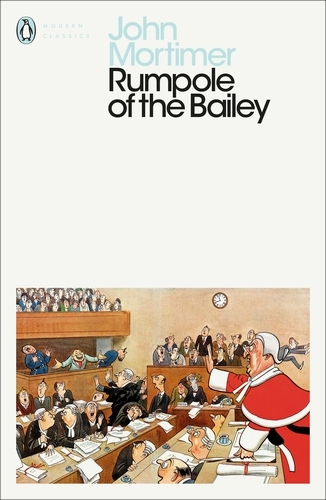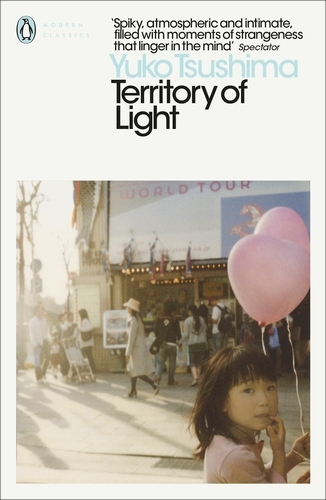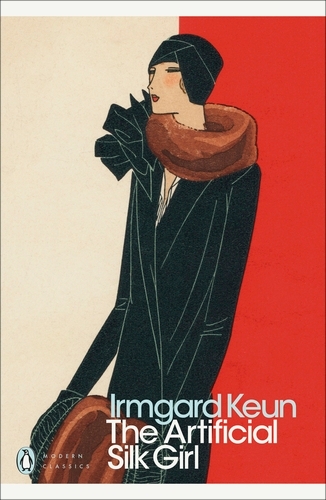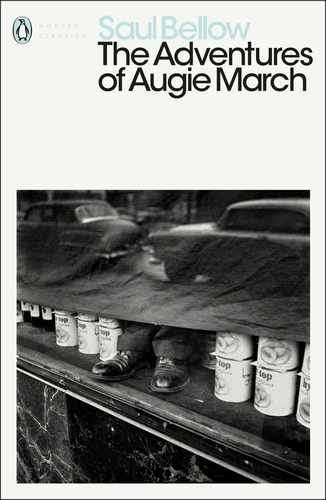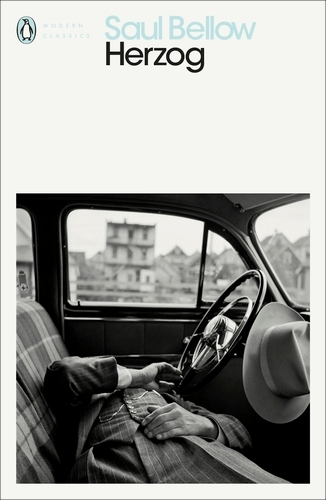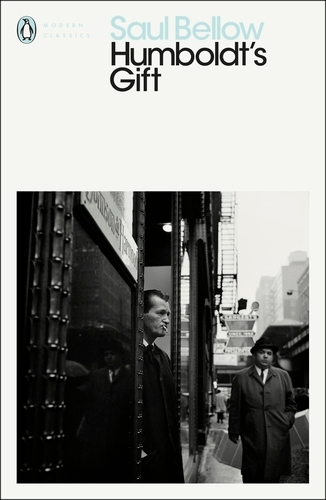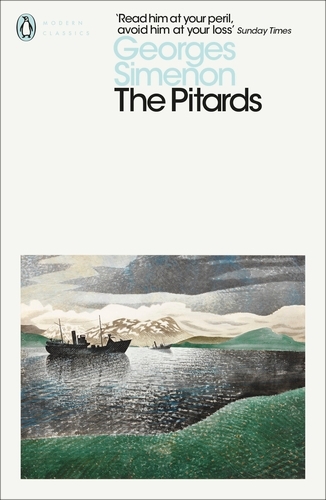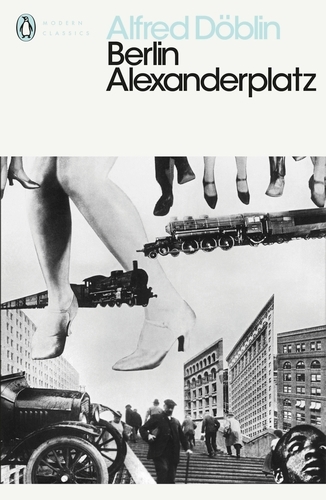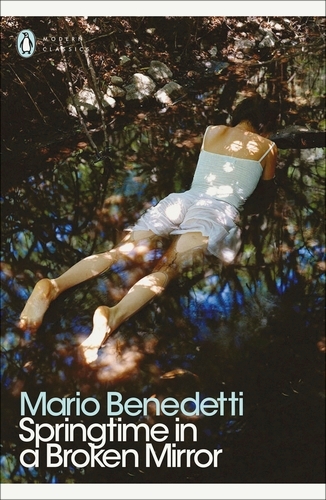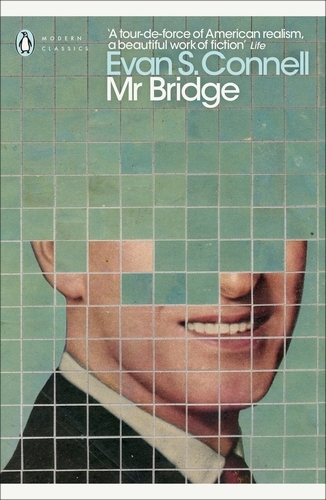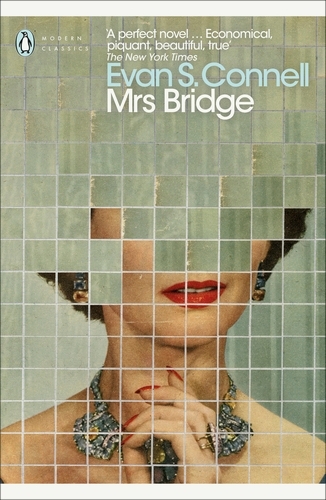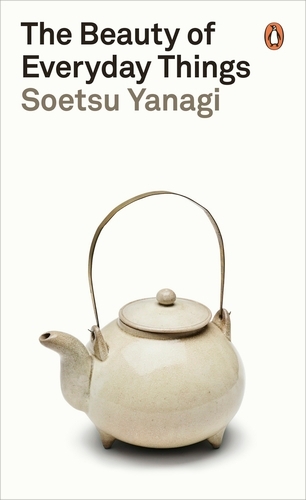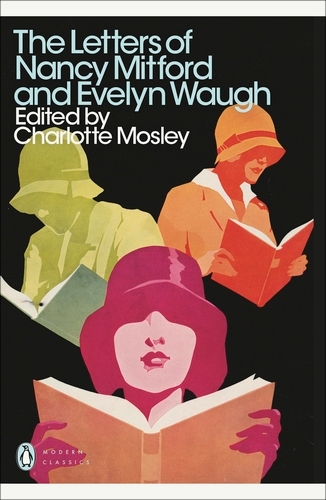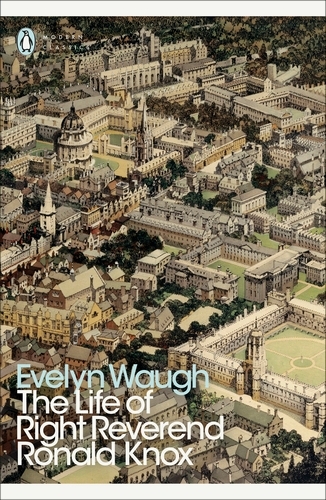Penguin Modern Classics
1282 books in this series
Dandelions
In a dreamlike Japanese town on the banks of the Ikuta River, Ineko loses the ability to see certain things. It begins with a ping-pong ball and progresses to her fiancé, whom she cannot see at all. The doctors call it somagnosia, and Ineko's mother and her fiancé place her in a psychiatric clinic to recover. As they walk home along the riverbank, they consider: is her condition really a form of madness? Is Ineko's selective blindness an expression of her love? Are the trees around them weeping?
Delicate, strange and spare, this novella carries the art of the novel into tantalizing and mysterious new realms.
Delicate, strange and spare, this novella carries the art of the novel into tantalizing and mysterious new realms.
The Frolic of the Beasts
Set in rural Japan shortly after World War II, The Frolic of the Beasts tells the story of a strange and utterly absorbing love triangle between a former university student, Koji; his would-be mentor, the eminent literary critic Ippei Kusakado; and Ippei's beautiful, enigmatic wife, Yuko. When brought face-to-face with one of Ippei's many marital indiscretions, Koji finds his growing desire for Yuko compels him to action in a way that changes all three of their lives profoundly. Originally published in 1961 and now available in English for the first time, The Frolic of the Beasts is a haunting examination of the various guises we assume throughout our lives, and a tale of psychological self-entrapment, seduction, and violence.
Rumpole of the Bailey
Horace Rumpole, the old boy committed to defending the apparently indefensible, trusting of a jury, scornful of the law's pomposities, appears here in a new edition of the 1978 iconic Rumpole debut.
This volume collects the much-loved stories 'Rumpole and the Younger Generation', 'Rumpole and the Alternative Society', 'Rumpole and the Honourable Member', 'Rumpole and the Married Lady', 'Rumpole and the Learned Friends' and 'Rumpole and the Heavy Brigade'.
This volume collects the much-loved stories 'Rumpole and the Younger Generation', 'Rumpole and the Alternative Society', 'Rumpole and the Honourable Member', 'Rumpole and the Married Lady', 'Rumpole and the Learned Friends' and 'Rumpole and the Heavy Brigade'.
Territory of Light
'Wonderfully poetic ... extraordinary freshness ... a Virginia Woolf quality' Margaret Drabble
Territory of Light is the radiant story of a young woman, living alone in Tokyo with her two-year-old daughter. Its twelve chapters follow the first year of the narrator's separation from her husband. The novel is full of light, sometimes comforting and sometimes dangerous: sunlight streaming through windows, dappled light in the park, distant fireworks, dazzling floodwater, de-saturated streetlamps and mysterious explosions. The delicate prose is beautifully patterned: the cumulative effect is disarmingly powerful and bright after-images remain in your mind for a long time.
Territory of Light is the radiant story of a young woman, living alone in Tokyo with her two-year-old daughter. Its twelve chapters follow the first year of the narrator's separation from her husband. The novel is full of light, sometimes comforting and sometimes dangerous: sunlight streaming through windows, dappled light in the park, distant fireworks, dazzling floodwater, de-saturated streetlamps and mysterious explosions. The delicate prose is beautifully patterned: the cumulative effect is disarmingly powerful and bright after-images remain in your mind for a long time.
The Artificial Silk Girl
Doris is going to be a big star. Wearing a stolen fur coat and recently fired from her office job, she takes an all-night train to Berlin to make it in the movies. But what she encounters in the city is not fame and fortune, but gnawing hunger, seedy bars, and exploitative men - and as Doris sinks ever lower, she resorts to desperate measures to survive. Very funny and intensely moving, this is a dazzling portrait of roaring Berlin in the 1920s, and a poignant exploration of the doomed pursuit of fame and glamour.
The Adventures of Augie March
Augie March is a penniless and parentless Chicago boy growing up during the Great Depression. A 'born recruit', he drifts through life latching onto a wild succession of occupations, including butler, thief, dog-washer, sailor and salesman, then proudly rejects each one as too limiting. Not until he tangles with the glamorous Thea, a huntress with a trained eagle, can he attempt to break free.
A modern-day Everyman in search of identity and fulfilment, Augie is the star performer in Bellow's exuberant, richly observed human variety show.
A modern-day Everyman in search of identity and fulfilment, Augie is the star performer in Bellow's exuberant, richly observed human variety show.
Herzog
Herzog is alone, now that his wife Madeleine has left him for his best friend. Solitary, in a crumbling house which he shares with rats, he is buffeted by a whirlwind of mental activity. People are rumouring that his mind had collapsed. But is it true? Locked for days in the custody of his rambling memories, Herzog scrawls frantic letters which he never mails. His mind buzzes with conundrums and polemics, writing in a spectacular intellectual labyrinth.
Is he crazy, or is he a genius?
In one of his finest achievements, Nobel Prize winner Saul Bellow presents a multifaceted portrait of a modern-day hero, a man struggling with the complexity of existence and longing for redemption.
Is he crazy, or is he a genius?
In one of his finest achievements, Nobel Prize winner Saul Bellow presents a multifaceted portrait of a modern-day hero, a man struggling with the complexity of existence and longing for redemption.
Humboldt's Gift
For many years, the great poet Von Humboldt Fleisher and Charlie Citrine, a young man inflamed with a love for literature, were the best of friends. At the time of his death, however, Humboldt is a failure, and Charlie's life has reached a low point: his career is at a standstill, and he's enmeshed in an acrimonious divorce, infatuated with a highly unsuitable young woman and involved with a neurotic mafioso. And then Humboldt acts from beyond the grave, bestowing upon Charlie an unexpected legacy that may just help him turn his life around.
The Pitards
After many years spent at sea, Captain Lannec finally manages to buy his own vessel, but not without the financial help of his in-laws, the Pitards. In return, his wife insists on accompanying him on the ship's first voyage and her presence on board makes him feel increasingly uneasy, especially after the threatening anonymous note he received before setting sail from Rouen.
First published in 1935, The Pitards was one of the first novels Simenon wrote when he shelved his famous Maigret series in order to strike out in a new direction and make a name for himself as a literary writer rather than a creator of genre fiction. This captivating evocation of life at sea revolves around the claustrophobia of class snobbery and the tense unravelling of relationships conducted at close quarters, powerful themes that Simenon would return to throughout his writing career.
First published in 1935, The Pitards was one of the first novels Simenon wrote when he shelved his famous Maigret series in order to strike out in a new direction and make a name for himself as a literary writer rather than a creator of genre fiction. This captivating evocation of life at sea revolves around the claustrophobia of class snobbery and the tense unravelling of relationships conducted at close quarters, powerful themes that Simenon would return to throughout his writing career.
Berlin Alexanderplatz
The subject of this book is the life of the former cement-worker and haulier Franz Biberkopf in Berlin. As our story begins, he has just been released from prison, where he did time for some stupid stuff, and now he is back in Berlin, determined to go straight.
To begin with, he succeeds. But then he gets involved in a set-to with an unpredictable external agency that looks an awful lot like fate.
To see and hear this will be worthwhile for many readers who, like Franz Biberkopf, fill out a human skin, but, again like Franz Biberkopf, happen to want more from life than a piece of bread . . .
To begin with, he succeeds. But then he gets involved in a set-to with an unpredictable external agency that looks an awful lot like fate.
To see and hear this will be worthwhile for many readers who, like Franz Biberkopf, fill out a human skin, but, again like Franz Biberkopf, happen to want more from life than a piece of bread . . .
Springtime in a Broken Mirror
Santiago is trapped. Taken political prisoner in Montevideo after a brutal military coup, he can do nothing but write letters to his family, and try to stay sane.
Far away, his nine-year-old daughter Beatrice wonders at the marvels of 1970s Buenos Aires, but her grandpa and mother - Santiago's beautiful, careworn wife, Graciela - struggle to adjust to a life in exile. Graciela fights to retain the fiery passion that suffused her marriage, her politics, her whole life, as day by day Santiago edges closer to freedom. But Santiago's rakish, reckless best friend is a constant, brooding presence in the exiles' lives, and Graciela finds herself drawn irresistibly towards him.
A lucid, heart-wrenching saga of a family torn apart by the forces of history, Springtime in a Broken Mirror tells with tenderness and fury of the indelible imprint politics leaves on individual lives. Generous and unflinching, it asks whether the broken bonds of family and history can ever truly be mended.
Far away, his nine-year-old daughter Beatrice wonders at the marvels of 1970s Buenos Aires, but her grandpa and mother - Santiago's beautiful, careworn wife, Graciela - struggle to adjust to a life in exile. Graciela fights to retain the fiery passion that suffused her marriage, her politics, her whole life, as day by day Santiago edges closer to freedom. But Santiago's rakish, reckless best friend is a constant, brooding presence in the exiles' lives, and Graciela finds herself drawn irresistibly towards him.
A lucid, heart-wrenching saga of a family torn apart by the forces of history, Springtime in a Broken Mirror tells with tenderness and fury of the indelible imprint politics leaves on individual lives. Generous and unflinching, it asks whether the broken bonds of family and history can ever truly be mended.
Mr Bridge
Walter Bridge, husband to India and father to three, is a successful lawyer in a Kansas suburb. The daily dramas of his life only serve to illuminate his narrow prejudices and complacent outlook, yet he is also troubled by dark undercurrents of desire and a yearning for something forever out of his reach. In Mr Bridge, Evan S. Connell gives us a poignant, satirical and poetic portrayal of a man who cannot escape his limitations and of a couple growing old together but unable, ultimately, to connect.
Mrs Bridge
Mrs Bridge, an unremarkable and conservative housewife in Kansas City, has three children and a kindly lawyer husband. She spends her time shopping, going to bridge parties and bringing up her children to be pleasant, clean and have nice manners. And yet she finds modern life increasingly baffling, her children aren't growing up into the people she expected, and sometimes she has the vague disquieting sensation that all is not well in her life. In a series of comic, telling vignettes, Evan S. Connell illuminates the narrow morality, confusion, futility and even terror at the heart of a life of plenty.
The Beauty of Everyday Things
Our lives are filled with objects. Everyday things used in everyday settings, they are our constant companions. As such, writes Soetsu Yanagi, they should be made with care and built to last, treated with respect and even affection. They should be natural and simple, sturdy and safe - an aesthetic fulfilment of our practical needs. They should, in short, be things of beauty.
Long revered as the authority on craftsmanship and Japanese aesthetics, Yanagi devoted his life and writing to defend the value of craft. In an age of feeble and ugly machine-made things, this now-classic book is a call for each of us to deepen our relationship with the objects that surround us. Inspired by the work of the simple artisans Yanagi encountered on his lifelong travels through Japan and Korea, it is a heartfelt defence of modest, honest, handcrafted objects, from traditional teacups to jars to paper. Objects that exemplify the beauty of everyday things.
"Radical and inspiring ... Yanagi's vision puts the connection between heart and hand before the transient and commercial" - Edmund de Waal
"Soetsu Yanagi's unerring eye has influenced generations of makers. His notion of Zen and the art of design continues to inspire all those involved in shaping our everyday world" - Jasper Morrison
Long revered as the authority on craftsmanship and Japanese aesthetics, Yanagi devoted his life and writing to defend the value of craft. In an age of feeble and ugly machine-made things, this now-classic book is a call for each of us to deepen our relationship with the objects that surround us. Inspired by the work of the simple artisans Yanagi encountered on his lifelong travels through Japan and Korea, it is a heartfelt defence of modest, honest, handcrafted objects, from traditional teacups to jars to paper. Objects that exemplify the beauty of everyday things.
"Radical and inspiring ... Yanagi's vision puts the connection between heart and hand before the transient and commercial" - Edmund de Waal
"Soetsu Yanagi's unerring eye has influenced generations of makers. His notion of Zen and the art of design continues to inspire all those involved in shaping our everyday world" - Jasper Morrison
The Letters of Nancy Mitford and Evelyn Waugh
Nancy Mitford and Evelyn Waugh were two of the twentieth century's most amusing and gifted writers, who matched wits and traded literary advice in more than five hundred letters over twenty-two years. Dissecting their friends, criticizing each other's books and concealing their true feelings beneath a barrage of hilarious and knowing repartee, they found it far easier to conduct a friendship on paper than in person. This correspondence provides a colourful glimpse into the literary and social circles of London and Paris, during the Second World War and for twenty years after.
The Life of Right Reverend Ronald Knox
Ronald Knox - priest, classicist and brilliant, prolific writer - was one of the outstanding men of letters of his time. The renowned Oxford chaplain was a friend of figures such as G. K. Chesterton and Hilaire Belloc, and was known for his caustic wit and spiritual wisdom. Evelyn Waugh, his devoted friend and admirer, was asked by Knox to write his biography just before his death in 1957. The result, published after two years of research and writing, is a tribute to a uniquely gifted man: 'the wit and scholar marked out for popularity and fame; the boon companion of a generation of legendary heroes; the writer of effortless felicity and versatility ... who never lost a friend or made an enemy'.
